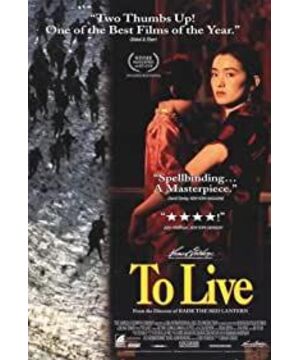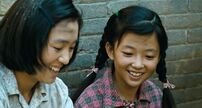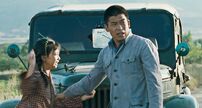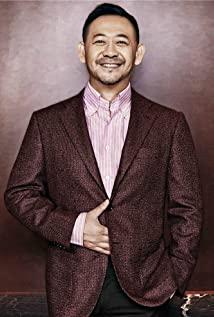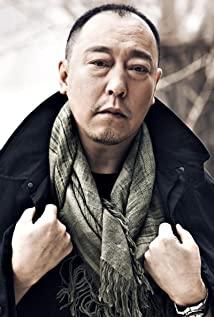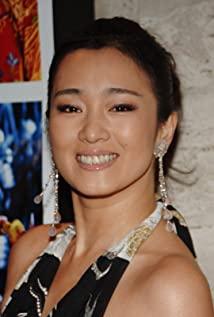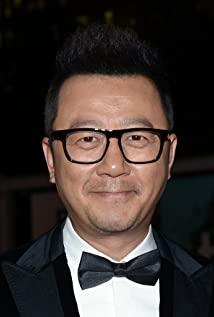The fate of the characters is related to the character and the times.
Chunsheng:
The prop of the character Chunsheng in the movie version, the car, is used very well.
At the beginning, Chunsheng said that he likes to drive, and later he stayed in the PLA to drive. To meet Fugui again, it was Chunsheng who died of Youqing because of an accidental car accident. When finally saying goodbye to Fugui, the background sound is the sound of the train whistle.
In the plot of the movie, Qing's death due to a "car accident" was an accident, and Chunsheng's props were highlighted again, which is more dramatic than the novel Youqing's death because of donating blood to the wife of the district chief.
The prop of the car also matches the character of Chunsheng very well: Chunsheng is a young man, and cars were a new thing back then. Cars symbolize certain financial rights. After the liberation, a new district head was created in Chunsheng, and later he was considered a capitalist roader and was criticized.
Youqing:
If the prop for Qing in the novel is a sheep, then the prop for Qing in the movie is food. Youqing used noodles to avenge the kid who bullied Fengxia, and in the end he didn't have time to eat dumplings. If it was me, it would be changed to someone who stole Youqing's dumplings while Youqing was sleeping, Youqing found out and chased after that person, and was hit by Chunsheng's car while crossing the road. Because Youqing's character is relatively skinny and reckless, the death in the final car accident is also related to her character.
Fengxia:
The time in the film is very strong. Fengxia's death highlights the ignorance and hatefulness of the Red Guards, which has obvious political irony at the time. The characteristics of the times in the novel are not particularly obvious, and it does not directly describe that Fengxia's death was caused by the unreasonable mistakes of others.
After Youqing's death, the audience's emotions fell to the bottom. The marriage of Fengxia and Erxi made the audience's emotions high, and Fengxia's death once again made the audience sad and resentful. This time, the sadness should exceed the emotion of Youqing's death. .
I personally think that the movies here are not as well handled as the novels. Instead of making the Red Guards the target of public criticism and blaming their fate on the dross of the times, it is better to let the will of God and fate be the masters, and become a life that is powerless in any era. There is always an object to hate, but there is always a projected hatred. There is no one to hate. People have done their best. The arrangement of God's will makes people more at a loss and despair.
Jiazhen
I think Jiazhen in the novel has a silent "stubbornness": in the beginning, Jiazhen went to Fugui to ask him to quit gambling, she was slapped, and the conflict was weakened in the movie. In the novel, Jiazhen did not say a single word of grievance after Fugui quit gambling, but in the movie there is such a line, which is said by the character himself, "Have I ever grieved you?" Instead, she has "should bury her grievance" in her heart. The mental activity of "Fugui" has disappeared, and the preciousness of Jiazhen that not only shares weal and woe, but also does not disappear.
The movie weakens the deterioration of Jiazhen's rickets, as if she was only ill for a while, with no explanation or explanation, and there are not a lot of plots to show that Jiazhen is ill and refuses to stay in bed, and she has to work while sick. , did not surrender to life until he fell and could not move. I can understand Jiazhen's mentality of "you can't be idle, you can't be idle". During the epidemic, I couldn’t go back to school or do an internship, but I also had to find something to do for myself, otherwise, it would really destroy the spirit of people lying down and doing “pleasure” in a hurry.
In the novel, Jiazhen lives very far back, and the character becomes more important the further back he lives. The movie really doesn't reflect the importance of this character.
Fugui
In the novel, after Fugui's family was in the middle of the road, they were all farming, and the means of livelihood in the film were changed to shadow puppets. Shadow puppets are like TV props that appear in movies, and they also have an audio-visual language. Each shadow puppet show reflects Fugui's situation at that time. The shadow puppet is pulled by the thread like the fate of Fugui. In the end, the shadow puppet box is no longer a shadow puppet but a live chick. The chick grows up and becomes a goose, and the goose grows up and becomes a sheep. When he grows up, he becomes a cow, implying a better and better life in the future.
The ending of the movie is that Jiazhen, Erxi, and Kugen are still alive, accompanying Fugui for the rest of his life, and still have warm emotions. In the novel, there is only one old cow left in Fugui. The film changed the theme of Yu Hua's novels, which wanted to express the primitive instinct of always respecting life even if he was alone, no matter how tortuous his life was. I don't know if this is Zhang Yimou's optimistic and hopeful view of life or the reason for the trial.
What is incomprehensible: the fate of the supporting role's death and Fugui's actions are always linked in the movie. At the beginning, the sudden death of Fugui's father is understandable because of Fugui's prodigal and dramatic considerations, followed by Qing and Feng. Xia's death is also led to blame Fugui, and it is unnecessary, because Fugui in the later period has changed his mind, and there is no tragic thing that will inevitably happen because of his "evil" character.
View more about To Live reviews


